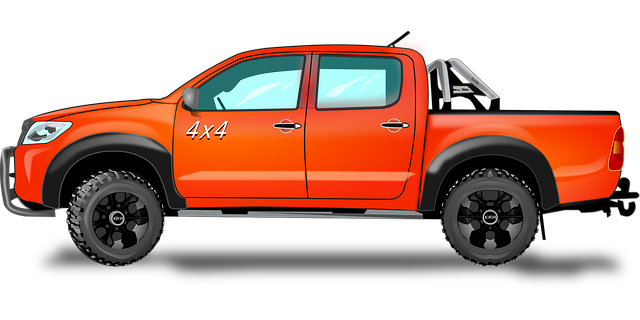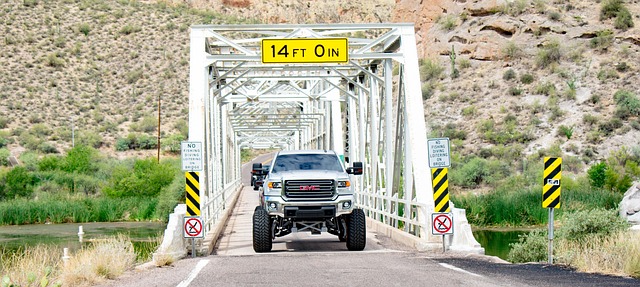ABS (Anti-lock Braking System) sensors, integrated into Brownsville, Texas truck winches, significantly enhance safety for drivers facing frequent stop-and-go traffic and hazardous weather conditions. These sensors monitor wheel speed, preventing lockup during hard braking, ensuring stable stops, and maintaining driver control. By sending real-time data to the ECU, ABS technology optimizes braking pressure, improving fuel efficiency and reducing maintenance costs. Regular inspections and professional consultations are crucial for troubleshooting malfunctioning sensors near Brownsville, ensuring safe driving conditions for truckers.
“ABS sensors play a critical role in enhancing vehicle safety, particularly in demanding conditions faced by trucks in Brownsville, Texas. This article offers a comprehensive guide to understanding these essential components. We explore their function in preventing wheel lock during braking, especially in challenging terrain where truck winches are frequently used. Through a step-by-step breakdown, we uncover the benefits of ABS technology and provide troubleshooting tips for common sensor issues encountered in commercial vehicles, all tailored to the unique needs of Brownsville’s trucking industry.”
- Understanding ABS Sensors: A Basic Overview
- The Role of ABS Sensors in Brownsville, Texas Truck Winches
- How ABS Sensors Work: A Step-by-Step Guide
- Benefits and Advantages of ABS Technology in Commercial Vehicles
- Troubleshooting Common ABS Sensor Issues in Trucks
Understanding ABS Sensors: A Basic Overview

ABS sensors, or Anti-lock Brake Systems, are critical components in modern vehicles, especially for those who rely on their cars for work, like truck drivers in Brownsville, Texas. These sensors play a vital role in enhancing safety by preventing wheels from locking up during hard braking events. By continuously monitoring wheel speed, ABS sensors help maintain optimal traction, allowing drivers to retain control of their vehicles even under extreme conditions.
In the event of sudden braking, ABS sensors detect changes in wheel rotation, signaling the vehicle’s computer to modulate brake pressure individually for each wheel. This dynamic process prevents wheels from locking, enabling the driver to steer and maintain stability. For truckers in Brownsville, this technology is especially valuable due to the frequent stop-and-go traffic and potential hazardous weather conditions they often encounter on Texas roads.
The Role of ABS Sensors in Brownsville, Texas Truck Winches

ABS (Anti-lock Braking System) sensors play a pivotal role in enhancing safety for truck drivers in Brownsville, Texas. These advanced sensors are integrated into modern truck winches, providing crucial data to prevent wheel lockup during braking. By continuously monitoring wheel speed, ABS sensors detect and mitigate skidding, ensuring stable and controlled stops, even under heavy loads or on slippery roads.
In the dynamic landscape of trucking, where efficiency and safety go hand in hand, Brownsville Texas Truck winches equipped with ABS sensors offer several advantages. They enable drivers to maintain control during emergency situations, improve overall braking performance, and contribute to better handling, all while reducing the risk of accidents. This technology is a game-changer for truck operators navigating the highways of Texas, ensuring a safer and more secure driving experience.
How ABS Sensors Work: A Step-by-Step Guide

ABS (Anti-lock Braking System) sensors are a crucial component in modern vehicles, especially for trucks like those found in Brownsville, Texas. These sensors work together to prevent wheels from locking up during hard braking, enhancing safety and control. Here’s a step-by-step guide on how ABS sensors function:
1. Signal Detection: When you apply the brakes, each wheel’s speed is constantly monitored by dedicated ABS sensors. These sensors send signals to the vehicle’s computer, known as the Electronic Control Unit (ECU).
2. Wheel Speed Variation: Normal braking should cause all wheels to slow down at roughly the same rate. If a sensor detects that one or more wheels are spinning faster than the others, it flags this discrepancy as a potential lockup.
3. Signal Processing: The ECU receives these signals and processes them to determine which wheels are at risk of locking up. It does this by comparing the speed of each wheel against expectations based on the vehicle’s braking inputs.
4. Pressure Regulation: Once the ECU identifies a wheel that’s approaching lockup, it immediately adjusts the brake pressure applied to that wheel. This is done by sending signals to the Hydraulic Control Unit (HCU), which controls the fluid pressure in the brake system.
5. Re-establishment of Grip: By rapidly alternating between increasing and decreasing brake pressure, the ABS sensor helps to maintain a grip on the road surface, preventing wheels from locking up entirely. This allows the driver to retain steering control during emergency stops.
Benefits and Advantages of ABS Technology in Commercial Vehicles

ABS technology has revolutionized safety in commercial vehicles, offering numerous benefits that enhance both driving experience and road conditions. One of its key advantages is improved traction control, which prevents skidding by individually applying brakes to wheels that spin during acceleration, especially on wet or icy roads—a feature particularly valuable for Brownsville, Texas’s frequent inclement weather and diverse terrain. This innovative system also contributes to better fuel efficiency since ABS optimizes braking pressure, reducing unnecessary wear and tear.
For businesses operating fleets of trucks in challenging conditions, like those in the Brownsville, Texas area known for its demanding transportation needs, ABS sensors provide real-time data that allows for proactive maintenance. By monitoring wheel speed and individual brake application, these sensors can detect potential issues early on, preventing costly breakdowns and ensuring vehicles remain reliable. Moreover, ABS technology enhances vehicle stability during emergency maneuvers, reducing the risk of accidents, thereby promoting road safety for all Brownsville truck drivers and passengers.
Troubleshooting Common ABS Sensor Issues in Trucks

ABS sensors, critical for a vehicle’s safety and control, can sometimes present issues in trucks. One common problem is sensor damage or contamination, which can be caused by road debris or extreme temperatures found on highways near Brownsville, Texas. If a sensor is malfunctioning, it may trigger an ABS warning light, leading to reduced braking efficiency or even complete loss of braking power, posing significant risks for truck drivers.
For truck owners experiencing these issues, especially those relying on Brownsville, Texas truck winches for towing and recovery, proper troubleshooting is key. Regular inspection of sensors for wear, tear, or debris buildup can help prevent problems. Consulting a professional mechanic familiar with the intricacies of ABS systems in trucks can also provide accurate diagnoses and effective solutions, ensuring the safety of drivers and their cargoes on the highways surrounding Brownsville, Texas.
ABS sensors play a pivotal role in enhancing safety, particularly in challenging conditions like those faced by trucks in Brownsville, Texas. By continuously monitoring wheel speed and providing real-time data, these sensors enable advanced braking systems to optimize traction and stability, significantly reducing the risk of accidents. In the context of truck winches in Brownsville, ABS technology ensures safer operations during towing and hauling, making it an indispensable component for commercial vehicle safety and efficiency.



